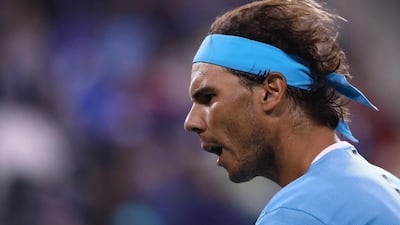Remember Lance Armstrong’s appearance, or rather deceitful performance, on CNN’s “Larry King Live” show in August 2005?
“I’ve said it for longer than seven years: I have never doped. I can say it again,” the American cyclist said with a straight face, before explaining his reasons.
“If you consider my situation: a guy who comes back from arguably, you know, a death sentence [Armstrong’s 1996 cancer diagnosis and treatment], why would I then enter into a sport and dope myself up and risk my life again?
“That’s crazy. I would never do that. No. No way.”
Eight years later, that same man, in the face of mounting evidence and testimonies, was back on TV, on a different show, to confess his doping crimes. He had done the full gig – EPO, blood doping, cortisone, testosterone and human-growth hormone – in each of his seven Tour de France triumphs.
His confessions, unfortunately, was the death of what we usually refer to as “presumption of innocence” in legal parlance.
Now, we simply smirk at any claims of innocence, even if the one protesting is a 14-time grand slam champion such as Rafael Nadal, a man whose body bears all the scars of his commitment to the sport.
Why would Roselyne Bachelot, a former French health and sports minister, lie when she says "Nadal's famous seven-month injury" post 2012 Wimbledon "was without a doubt due to a positive [drug test]", right? "When you see a tennis player who stops playing for long months, it is because he has tested positive and because they are covering it up," she explained on the French TV show "Le Grand 8" last week, hours after Maria Sharapova had admitted she had tested positive for meldonium, a substance that was added to the banned list at the start of this year and has already triggered 99 failed tests.
ALSO READ: Sharapova, perpetrator of a small crime, learning superstar status cuts both ways
Meldonium is often prescribed to treat heart complaints and Sharapova claimed she had been taking the substance legally for 10 years to deal with health issues, such as an irregular heartbeat and a history of diabetes in her family.
But as Andy Murray told BBC Radio 5 last week, it is “strange that so many athletes competing at the top level of their sport would have that condition”.
Strange indeed. But then, Sharapova has already taken ownership for the failed dope tests, and has not sought any sympathy from anyone. She is ready to face the consequences. Nadal, on the other hand, is adamant about his innocence and tired about all the allegations that have been levelled against him in the past, most notably by former Belgium tennis pro Christophe Rochus and Austrian Daniel Koellerer, who has banned for life in 2011 for match-fixing.
Five years ago, even Yannick Noah, the former French star, talked about a Spanish “magic potion” in the Le Monde newspaper.
Reacting furiously to Noah’s allegations, Nadal, at the time, had said “this guy deserve not [to] write anymore in the newspaper”. This time, he has threatened legal action against Bachelot.
“I gonna sue her, and I gonna sue everyone who gonna comment something similar in the future, because I am tired of that,” Nadal said on Sunday night in Indian Wells.
“Rafael’s lawyer is already working to potentially take legal action against [Bachelot],” Toni, Nadal’s uncle and coach, told a Spanish radio show the same night. “In this world, instead of proving one’s guilt, a person must prove their innocence.”
ALSO READ: Sharapova, Armstrong and how to reconsider how we think of doping
It is sad to see Nadal being treated like this, but the blame rests with tennis officials and their questionable doping policies.
In 1998 Petr Korda, the reigning Australian Open champion, tested positive for nandrolone at Wimbledon, but the news was not made public until nearly six months later.
In 2009 we heard an ITF anti-doping tribunal say Frenchman Richard Gasquet had accidently ingested cocaine while kissing a woman at a nightclub.
The biggest joke was Andre Agassi’s positive test for crystal meth in 1997. The governing body did not take any action because the American great said he had accidently sipped his assistant’s spiked soda.
Later, in his autobiography, released in 2009, Agassi admitted he had lied to the tennis authorities about the accidental ingestion.
Earlier in 2004, when Greg Rusedski tested positive for nandrolone, the same Agassi talked about how the “game is built on sportsmanship, it’s built on respect for the game” and how tennis had “evolved every bit as quickly when it comes to the process of detecting the cheats”.
And Agassi said that with a straight face, just like Armstrong on Larry King Live.
No wonder, then, “presumption of innocence” is long dead in the world of sports.
ALSO READ: Stats a concern for Nadal, but mean streak should return with time
arizvi@thenational.ae
Follow us on Twitter @NatSportUAE
Like us on Facebook at facebook.com/TheNationalSport

